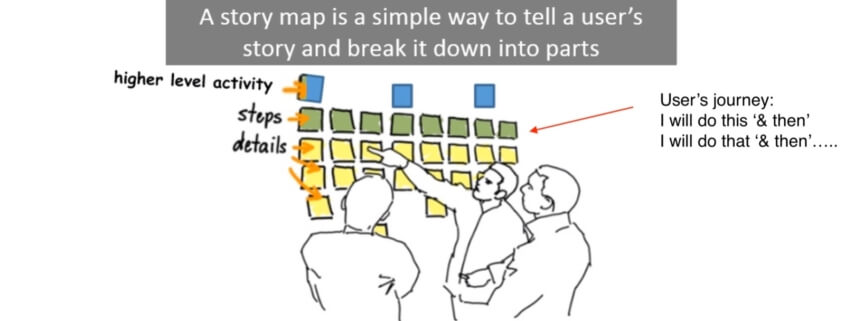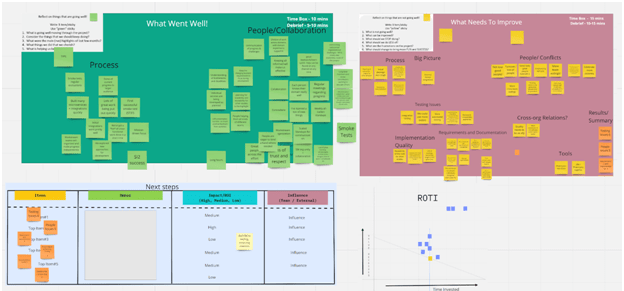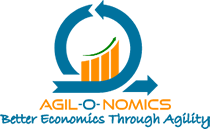
This is the second part/continuation of the article “How do Great Product Owners help their Teams”
For part 1 of the article, please refer to: How do Great Product Owners help their Teams – Part 1
In this second part, we will dive deep into the remaining 5 attributes of great Product Owners that help them help their teams.
6. How Product Owners help their Teams Win with Storytelling

Telling stories is an art, and product owners are the storytellers in agile development. But, their storytelling is not just about spinning a yarn.
It’s about conveying user needs and requirements to the team in a way that is easy to understand and estimate.
This is where user stories come in. I agree with Mike Cohn, “user stories are placeholders for conversations”, and “a reminder to have a dialogue between the product owner and developers” to refine the story and ensure everyone understands how the resulting software will function.
A good product owner is a skilled communicator who can translate user goals into a clear, elevating goal for the product. They don’t just recite a list of stories but connect those stories to workflows and how users interact with the system.
So, how can product owners improve their storytelling? One approach is to think about how they would explain the product’s benefits to their grandma.
Another is to use analogies or metaphors that team members can relate to. With the right stories, product owners can inspire their team and build a shared understanding of the product vision.
7. Motivating and Inspiring: Igniting the Fire Within Your Team
As a good product owner, you have the power to inspire and motivate your team to go above and beyond. A motivated team is a high-performing team that can achieve remarkable results. So, how can you light that fire within your team?
First and foremost, lead by example. Show enthusiasm, passion, and dedication for the product and the project. Celebrate wins, big and small, and recognize the efforts and achievements of your team members. A simple “thank you” or public appreciation of your team members can go a long way in boosting their morale.
Additionally, create a positive and inclusive work environment. Foster a culture of trust, collaboration, and open communication. Encourage creativity and innovation by giving your team the freedom to experiment and take calculated risks. Remember, a team that feels valued and empowered will be motivated to deliver their best work.
As Steve Jobs once said, “The only way to do great work is to love what you do.” So, inspire your team, unleash their potential, and watch them thrive.

8. Decisive and Willing to Make Hard Decisions: The Sign of a Strong Product Owner
In the fast-paced world of product development, tough decisions are inevitable. As a good product owner, you must have the courage and conviction to make those decisions, even when they are challenging.
Decisiveness is key to maintaining momentum and keeping the project on track. Trust your instincts, gather relevant data and insights, and be confident in your judgment. Avoid analysis paralysis and the trap of seeking perfection. Sometimes, a well-informed decision made in a timely manner is better than waiting for perfect information.
Remember, the goal is to maximize the value of the product and deliver exceptional outcomes. Embrace the responsibility of making difficult choices and communicate them effectively to your team. Your ability to make tough decisions will earn you the respect of your team and stakeholders alike.

As Winston Churchill once said, “Courage is what it takes to stand up and speak; courage is also what it takes to sit down and listen.” So, be decisive, listen to different perspectives, and make the hard decisions that propel your project forward.
9. Taking an Economic View: Balancing Business and Technology for Success
 Being a good product owner means understanding the intersection of business and technology and taking an economic view of project decisions. It’s not just about building features; it’s about delivering value and maximizing return on investment.
Being a good product owner means understanding the intersection of business and technology and taking an economic view of project decisions. It’s not just about building features; it’s about delivering value and maximizing return on investment.
Consider the cost-benefit analysis of each decision and prioritize features that provide the most significant impact. Collaborate closely with stakeholders to align business goals with technological capabilities. Remember, it’s not about building everything, but rather delivering what brings the most value to the customer and the business.
Strive for efficiency and optimize resources by eliminating waste and focusing on high-value activities. Continuously evaluate and reassess the product’s market viability and adjust your strategy accordingly. By taking an economic view, you can ensure that your product remains relevant, competitive, and commercially successful.
As Jeff Bezos famously said, “The best customer service is if the customer doesn’t need to call you, doesn’t need to talk to you. It just works.” So, as a product owner, keep an eye on the bottom line and work towards maximizing the value of your product.
10. Building Strong Relationships with Stakeholders: Collaboration for Long-Term Success

Building good relationships with stakeholders is crucial for the success of any product owner. It’s not just about delivering a product; it’s about creating long-term partnerships that drive continuous improvement and customer satisfaction. As Helen Keller once said, “Alone, we can do so little; together, we can do so much.”
When you collaborate closely with stakeholders, you tap into their expertise, leverage their insights, and align your product with their needs and expectations. By fostering strong relationships based on trust and mutual respect, you create a network of support and advocacy that can propel your product to new heights.
This does require active effort and dedication. Take the time to understand their goals, challenges, and constraints. Show genuine interest in their perspectives and demonstrate that their input is valued.
Regularly update them on the progress of the product and seek their validation and endorsement. Think of stakeholders as your allies on the journey towards product excellence. Involve them early on, seek their feedback, and listen to their suggestions.
Engage in open and transparent communication, and be responsive to their concerns and priorities. Remember, the success of your product is not achieved in isolation. It’s the result of collaboration, teamwork, and shared vision.
Conclusion:
Good product owners possess a unique blend of skills and qualities that enable them to drive success. By being accessible, visionary, collaborative, and decisive, they inspire their teams to achieve greatness. They prioritize effectively, communicate with impact, and build strong relationships with stakeholders. They balance business and technology, always striving to maximize value. In a rapidly changing world, they adapt, learn, and grow. As product owners, they have the power to transform products, teams, and lives. Embrace these qualities, and unleash your potential as a remarkable product owner.
My thoughts and ideas have been influenced by interacting, studying and working with Jeff Patton, Kenneth Reubin and Mike Cohn.































